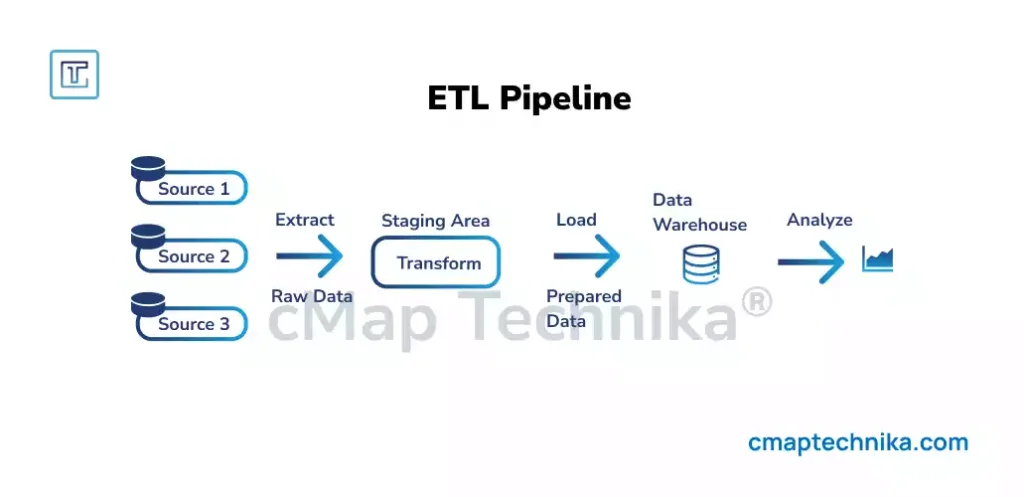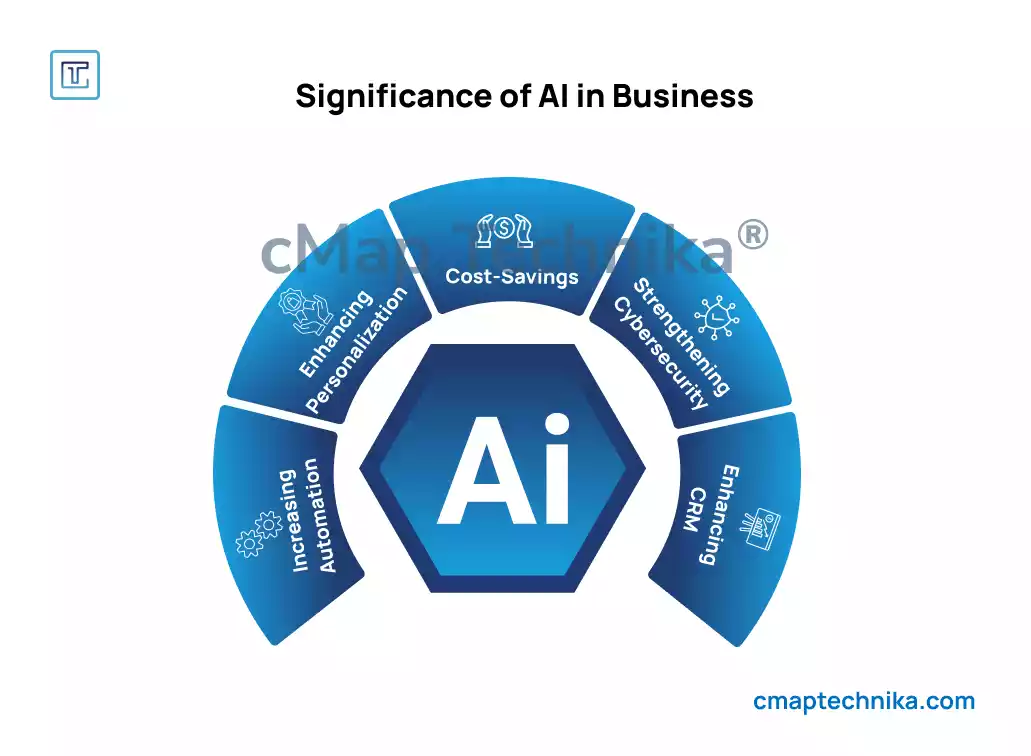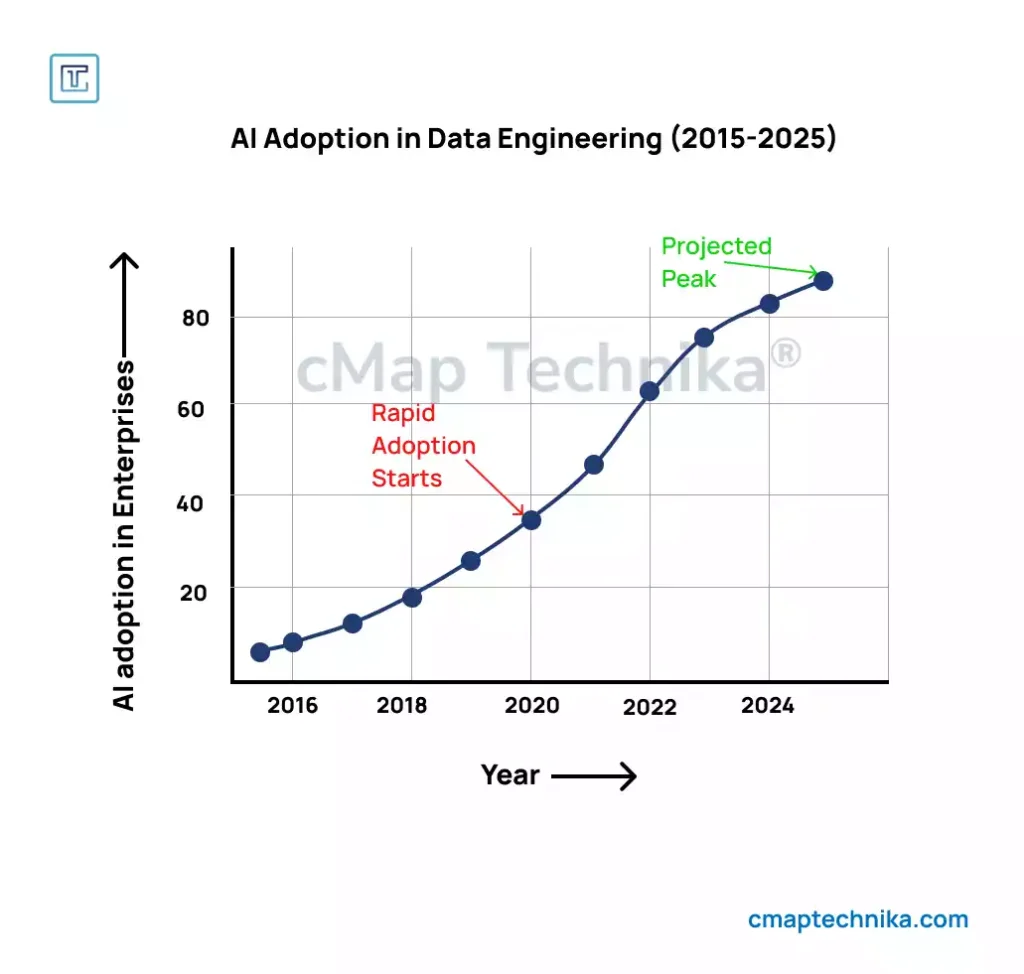In today’s rapidly evolving digital economy, data is not just an asset—it is the foundation of business success. Organizations that harness the power of data effectively gain a competitive edge, enabling smarter decision-making, operational efficiency, and innovative customer experiences. However, traditional data management approaches are no longer sufficient to meet the growing demands of a data-driven world. Enter AI-driven data engineering, a transformative force that is redefining the business landscape and shaping the future of enterprise intelligence.
The Shift Towards AI-Driven Data Strategies

Businesses generate an overwhelming volume of data from various sources—customer interactions, IoT devices, enterprise applications, and market trends. The challenge lies in extracting meaningful insights from this vast pool of information. AI-powered data engineering provides the tools and methodologies to automate data collection, integration, and processing, making real-time analytics and predictive modeling more accessible than ever before.
1. Intelligent Data Processing and Management
Traditional data pipelines involve complex ETL (Extract, Transform, Load) processes that require significant manual effort. AI-driven automation simplifies these processes by:
- Enhancing data ingestion through intelligent parsing, anomaly detection, and adaptive filtering techniques that ensure high data quality.
- Automating data transformation with machine learning models that optimize schema mapping, eliminate redundant data, and improve real-time indexing.
- Streamlining data governance with AI-powered anomaly detection, compliance monitoring, and automated audits to ensure data integrity and regulatory adherence.
- Enabling real-time data streaming and batch processing simultaneously, ensuring businesses can react dynamically to fast-changing market conditions.
2. Advanced Analytics for Proactive Decision-Making
AI-driven analytics enable businesses to move beyond descriptive insights and embrace predictive and prescriptive intelligence. By leveraging deep learning, natural language processing, and statistical modeling, organizations can:
- Predict market shifts and customer behaviors with higher accuracy, helping businesses develop proactive strategies.
- Optimize supply chain management through AI-driven forecasting models that analyze multiple variables such as demand fluctuations, geopolitical risks, and transportation delays.
- Enhance risk assessment and fraud detection in financial and regulatory environments by leveraging AI models that detect patterns in transactions, flagging anomalies in real-time.
- Use AI-powered scenario simulations to evaluate different business strategies, allowing decision-makers to choose the most effective course of action.
3. Scalable and Adaptive AI Architectures
Legacy data infrastructures often struggle with scalability and flexibility, limiting their ability to process and analyze data efficiently. Modern AI-driven architectures leverage:
- Cloud-based data lakes and distributed computing for high-speed processing, ensuring businesses can scale effortlessly as data volumes grow.
- Edge AI to enable real-time analytics at the source of data generation, reducing latency and improving the accuracy of immediate insights.
- Continuous learning algorithms that adapt to changing business environments, allowing AI systems to self-improve based on new data patterns.
- Hybrid AI models that combine centralized and decentralized approaches, ensuring optimal performance across different enterprise environments.
The Role of AI in Business Transformation

Organizations that successfully integrate AI into their data strategies unlock new avenues for growth and efficiency. Some of the key benefits include:
- Enhanced Decision Intelligence: AI-powered dashboards and automated reporting systems provide real-time insights, empowering executives to make informed strategic decisions.
- Personalized Customer Experiences: AI-driven recommendation engines and sentiment analysis help businesses tailor products and services to individual customer needs, leading to higher engagement and loyalty.
- Operational Efficiency and Cost Reduction: Automating repetitive data tasks reduces human error and operational costs while accelerating data workflows, allowing teams to focus on strategic initiatives.
- Regulatory Compliance and Data Security: AI-enhanced cybersecurity frameworks identify vulnerabilities, ensuring adherence to global data privacy standards such as GDPR and CCPA. AI-driven identity verification further strengthens security against unauthorized data access.
- AI-Augmented Workforce: AI tools enhance workforce productivity by automating routine tasks, assisting in data-driven decision-making, and improving cross-functional collaboration through intelligent insights.
Future Trends in AI-Driven Data Engineering

As AI continues to evolve, several emerging trends are shaping the future of data engineering:
- Federated Learning: Decentralized AI models that enhance data privacy while enabling collaborative learning across multiple institutions, reducing the need for centralized data storage.
- Synthetic Data Generation: AI-created datasets that supplement real-world data to improve model training, reduce bias, and address data scarcity challenges.
- Autonomous Data Pipelines: Self-optimizing data workflows that dynamically adapt to changing business needs, reducing the need for manual intervention in data engineering processes.
- AI-Augmented Data Engineering Teams: Human-AI collaboration in data engineering, where AI tools assist professionals in building smarter, more efficient data ecosystems, enhancing problem-solving and innovation.
- Explainable AI (XAI) in Data Engineering: As AI decision-making becomes more complex, transparency in AI-driven processes will become a priority, ensuring businesses can interpret and trust AI-driven outcomes.
Conclusion
The future of business transformation is being shaped by AI-driven data engineering. Organizations that embrace AI-powered data strategies gain a significant competitive advantage by unlocking deeper insights, optimizing operations, and enhancing customer experiences. The integration of AI into data engineering not only streamlines processes but also fosters innovation, allowing businesses to evolve rapidly in an increasingly complex digital landscape.
As AI continues to push the boundaries of data engineering, businesses that invest in these technologies will be better equipped to navigate uncertainties, scale efficiently, and meet evolving customer expectations. The convergence of AI, big data, and cloud computing will pave the way for unprecedented growth, making AI-driven data engineering a fundamental pillar of modern business strategy.
Stay ahead of the curve with AI-driven data strategies—transform your business today.







